Official opening of the TUM Blockchain Conference 2025
Speakers:
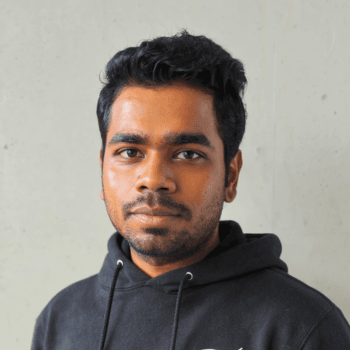
Gopi MehtaPresident, TUM Blockchain Club

Eva FreibergerHead of Marketing, TUM Blockchain Club
Mythbusting MPC: CoSNARKs, Friendly Hashes, and Private Shared State
We are discussing common misconceptions around practical secure multiparty computation, and outline recent and ongoing work towards private shared state systems.
Speaker:

Christian RechbergerProfessor, TU Graz and Co-founder & Chief Scientist, TACEO
Speaker:
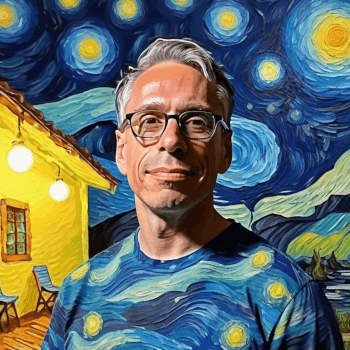
Paul BrodyGlobal Blockchain Leader @ EY, Chairman, Enterprise Ethereum Alliance
Building the World Ledger - Report
Based on our new report, this presentation outlines Ethereum’s evolution since 2015 into the leading smart contract platform, powering DeFi, NFTs, DAOs and RWAs. Now entering its next wave of scaling and adoption.
Speaker:

Lorenz LehmannResearch Lead , growthepie
SNARKs from Functional Commitments
I will present a paradigm to build a SNARK from a Functional IOP and a Functional Commitment (capturing almost all SNARKs, particularly optimized SNARKs in-the-wild), as well as a security analysis which closes a key security gap from prior works.
Speaker:

Christian KnabenhansPhD student, EPFL
Bring Your Ideas for Next-generation, Resilient Applications on Polkadot
Learn how to turn your web3 ideas into strong hackathon-ready projects with Polkadot. Join Sacha and Denis for a hands-on workshop, then get expert support at the Polkadot booth to take your ideas further.
Speakers:

Sacha LanskyDevRel, DevCult

Denis PisarevDevRel Engineer, co-founder, DevCult
Analyzing the Crime Scene with Onchain Fingerprints
A deep dive into how onchain analytics trace criminal activity, support investigations, and help governments build safer digital asset ecosystems.
Speaker:

Matthias Bauer-LanggartnerHead of Policy, Europe, Chainalysis
Consensus in Low-Latency Blockchains
This talk introduces the fundamentals of consensus and examines how modern blockchains achieve low latency through different design choices. We will explore two representative protocols—Jolteon (chain-based) and Mysticeti (DAG-based)—to illustrate the principles and trade-offs behind consensus.
Speaker:

Nikita PolianskiiSenior Applied Research Engineer, IOTA Foundation
Tokenzation- climbing up the plateau of productivity
Panel Discussion
Ecosystem
Panel discussion regarding Tokenization and the real world use cases happening right now involving major financial institutions
Speakers:

Rafael KaazHead of Operations, Cashlink

Christoph HockHead of Tokenisation and Digital Assets (PM), Union Investment

Christian FormaHead of Treasury, WIBank

Dr. Miguel VazManaging Director , Hauck Aufhäuser Digital Custody GmbH
On Extractability of Pairing-Based Polynomial Commitments
The extractability of pairing-based commitments, crucial for the security of many zk-SNARKS, was unresolved until recently. I will present our results establishing extractability for the standard KZG family, including optimized multivariate variants.
Speaker:

Pavel HubáčekCryptographer, Czech Academy of Sciences and Charles University
Privacy Without Paranoia: MPC as a Building Block in the Age of Decentralization
Secure Multiparty Computation (MPC) enables privacy-preserving collaboration without revealing inputs. This talk introduces MPC’s core ideas and its potential as a foundational tool for secure computation in decentralized systems.
Speaker:

Nina SchwankeResearch Associate, TUM
Demystifying 𝒫𝔩𝔬𝔫𝒦: A Hands-on Tutorial Framework for Zero-Knowledge Education
Zero-knowledge proofs (ZKPs) have rapidly evolved from theoretical cryptographic
constructions into practical systems underpinning many leading blockchain and
privacy-preserving technologies. Among these, the 𝒫𝔩𝔬𝔫𝒦 protocol has emerged as
one of the most influential zk-SNARKs, both as a deployed proof system and as a
foundation for numerous optimizations and derivatives (such as TurboPlonk,
UltraPlonk and HyperPlonk among others). Yet, despite its wide adoption,
𝒫𝔩𝔬𝔫𝒦 remains notoriously difficult to understand. On one hand, while the
original PLONK paper is mathematically rigorous, it presents selector
polynomials, wiring permutations, quotient tests, random challenges, and KZG
commitments with little accompanying guidance, making it difficult for
newcomers to build intuition. On the other hand, modern implementations such as
Halo2 have already diverged from the original presentation, introducing
engineering optimizations and generalizations that obscure the underlying
algebraic structure. Students and practitioners thus face a tension: the theory
is too abstract, while the implementations are too optimized. This leaves a gap
for those seeking to truly understand how the pieces of 𝒫𝔩𝔬𝔫𝒦 fit together.
To address this gap, we have developed and open-sourced a comprehensive,
hands-on tutorial that demystifies 𝒫𝔩𝔬𝔫𝒦 through a carefully designed running
example. A key challenge in designing such material was to select an example
that is small enough to be readable and tractable, while still realistic enough
to reflect the true algebraic setting of deployed systems. Our tutorial
therefore builds on circuits that are minimal yet non-trivial, and uses
realistic parameters such as the BN254 curve and pairings, avoiding the extreme
simplifications often found in introductory accounts. This ensures that
learners practice with the same mathematical objects used in real-world
deployments, while still being able to follow the protocol end to end.
The tutorial guides learners from simple arithmetic circuits all the way to a
full non-interactive Fiat–Shamir proof. Along the way, participants build
explicit tables of intermediate values, interpolate low-degree polynomials over
the BN254 field, encode gate and wiring constraints, and perform both
deterministic and probabilistic zero-tests. A central pedagogical goal was not
just to “show solutions” but to let learners actively solve exercises
themselves. Each section is broken into incremental exercises with associated
test cases, enabling students to check their own progress and build confidence
before moving forward. This interactive structure turns what could be a passive
reading experience into an engaging, problem-solving journey.
The tutorial has already been deployed in an academic context, specifically in
a graduate-level course on zero-knowledge proofs at the Technical University of
Munich (TUM), where it served as a practical complement to lectures on advanced
proof systems. Student feedback highlighted that the structured, incremental
nature of the exercises allowed them to internalize concepts that would
otherwise remain opaque when reading only research papers or codebases. The
material is openly available at https://plonk.zksecurity.xyz, enabling
reproducibility, reuse, and extension by the broader community.
Our contribution is therefore pedagogical and methodological: rather than
proposing a new protocol, we propose a new way of learning one. By exposing the
algebraic building blocks in a progressive manner, carefully balancing
simplicity with realism, and enabling self-directed exploration through
exercises and test cases, we make 𝒫𝔩𝔬𝔫𝒦 accessible to both newcomers and
practitioners who wish to deepen their understanding. Beyond 𝒫𝔩𝔬𝔫𝒦 itself, the
tutorial demonstrates a framework for teaching ZKPs that could be extended to
other protocols, helping to bridge the gap between abstract cryptographic
papers and optimized production implementations. In doing so, we hope to lower
the barrier to entry for researchers, engineers, and students, contributing to
the wider adoption and secure deployment of ZKPs in practice.
Speaker:

Martín OchoaCryptography Engineer and Researcher, zkSecurity
Binius: Binary Proofs for Bitwise Operations
I present the state-of-the-art techniques for ZK-SNARKs heavy in bitwise operations, using binary fields and multilinear polynomials. I discuss my team's research into fast polynomial commitments, lessons from implementation, and current bottlenecks.
Speaker:
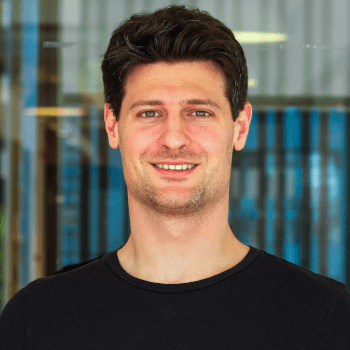
Jim PosenCo-founder, CTO, Irreducible
Commercial Bank Money Token - A New Contender?
The German bank associations have come up with a new concept for digital payments - the commercial bank money token (CBMT). What is that, what are the advantages, and could it be a contender for the "digital money of the future"?
Speaker:

Prof. Dr. Philipp Maume, S.J.D. (La Trobe)Professor of Capital Markets Law, TUM School of Management
Becoming a Base Builder - build your first onchain mini-app
Join this workshop to see how Base empowers builders to launch apps, grow businesses, and earn onchain.
Get inspired by Base projects, learn about Base support programs for new builders, and start earning by creating your first mini‑app on Base.
Speaker:

Axel MitbauerCountry Lead Germany and Switzerland, Base
The talk gives an overview over custodial and non-custodial wallets, DApps, DEXes, AMM, Lending Protocols and Stablecoins. It is aimed at beginners.
Speaker:

Dr. Christian ZieglerCTO, StableLab
Consensus from Work, Space and Time
Speaker:

Krzysztof PietrzakGroup Leader, ISTA
Reflecting Stablecoin Summer: From Evolution in Digital Money to Digital Sovereignty
The presentation explores the transformative rise of stablecoins and their implications for digital sovereignty in Europe. It begins by highlighting the explosive growth in stablecoin transaction volumes—reaching $33 trillion in the past year—surpassing traditional payment systems like Visa and Mastercard. Stablecoins are positioned as a game changer, offering near-instant, low-cost transfers and enabling new forms of programmable money and AI-powered marketplaces. The talk contrasts the U.S. regulatory approach, which fosters innovation through the GENIUS Act, with Europe's more cautious stance under MiCAR, which prioritizes financial stability over scalability. Despite efforts like the digital euro and initiatives such as eIDAS 2.0 and EBSI, Europe remains far behind in global stablecoin adoption, with less than €350 million in euro-backed tokens. The presentation calls for a strategic pivot toward building resilient, decentralized infrastructures and trustworthy data ecosystems to reclaim digital sovereignty. It concludes with a provocative question: should Europe try to catch up—or leap directly to the next level of programmable, agent-driven financial systems?
Speaker:

Prof. Dr. Jens StrükerDirector, Fraunhofer Blockchain Lab
An Introduction to Blockchain-Based Prediction Markets
Prediction markets let people bet on future events and turn collective guesses into probabilities. On a blockchain, they run without a central operator, using smart contracts to create, trade, and settle tokens.
Speaker:

Jonas GebelePhD Student, TUM
Opening words for the Academic Forum
Speaker:
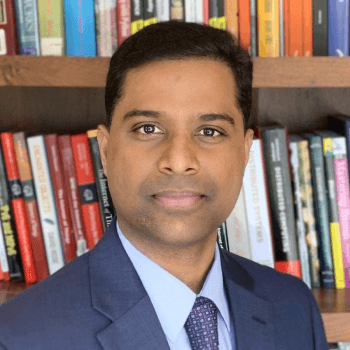
Dr. Ramesh RamadossChair, IEEE Blockchain
Confidential & Trustless AI Agents: How Web3 Provides the Infrastructure for Autonomous Machine Collaboration
Panel Discussion
Application
As artificial intelligence evolves towards autonomous agents, the need for privacy, trust, and secure collaboration between machines becomes critical. This panel brings together experts from industry and academia to explore how Web3 technologies enable confidential, trustless, and verifiable AI agent interactions.
Speakers:

Peter BuschChair, Fetch.ai Foundation

Marko StokićHead of AI, Oasis

Bastian BurgerDirector AI, TUM Venture Labs

Theresa Katharina AmannDigital Solutions Manager , CorPa

Ekaterini LaroIndustry, TUM Blockchain Club
Privacy on the blockchain by catching a cheater red-handed
Speaker:

Alberto IbarrondoCryptographer, Arcium
State of Ethereum's ZK proving systems
Speaker:

Sergey Shemyakov, PhDZK Researcher, L2BEAT
Presentation of the Academic Forum Posters
Speakers:

SarthiDeFi Reseacher | Developer | Founder, FeeFlex_Labs
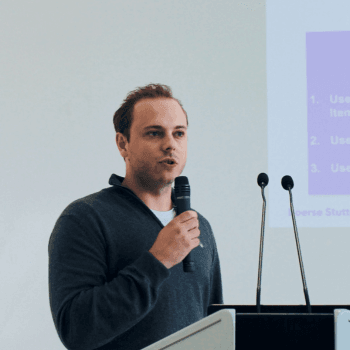
Georg BeyschlagIndustry, TUM Blockchain Club

Alexander HammerlPhD Student , DTU
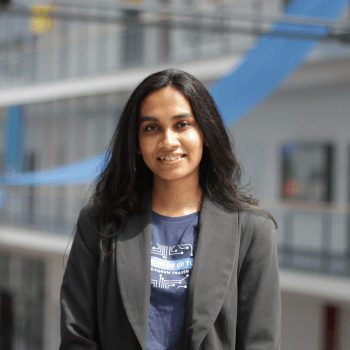
Krishna MavaniMSc. Informatics, TUM

Dr. Johnnatan MessiasResearch Scientist, MPI-SWS

Dr. Daniel KirsteResearch Scientist, TUM
Account Abstraction for Enforcing Blockchain-Based AI Agent Non-Functional Requirements
As Artificial Intelligence (AI) agents are brought on-chain to take over tasks of users, measures are needed to enforce user requirements. We propose the use of account abstraction (AA) primitives to steer AI agent capabilities in Web3 apps.
Speaker:

Jan Lauinger, PhDDeveloper, Zircuit
DeFi Beyond the Hype - How Innovative Applications Drive Real Blockchain Adoption
DeFi has matured with strong adoption across stablecoins, lending, yield, RWA, perps, and DEXs. This talk covers key innovations, lending modularity, DEX/perp advances, and yield protocols like Pendle, showing how DeFi is scaling
Speaker:

Julius NagelGeneral Partner @w3.wave, w3.group
Verifiable and Privacy-Preserving Decentralized AI
Decentralized AI via Federated Learning (FL) enables secure data analysis across nodes. zk-FDL uses ZKP and blockchain to ensure privacy and integrity. We explore architecture, security, applications in healthcare and finance, and future research
Speaker:
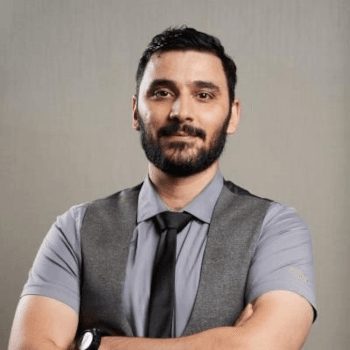
Dr. Reza NourTechEd at W3F, Postdoctoral Fellow at UBC in Blockchain and AI
Turning Ethereum mainnet EVM into a zkEVM. (This will be an online talk)
Speaker:

Justin DrakeResearcher, Ethereum
Trusted AI for Future Mobility
In times of economic and geopolitical challenges, we need clear strategic and technical goals without further lock-ins and a priority on data sovereignty - the Fetch.ai Foundation does exactly that on future Web3 and Open Source based Technologies.
Speaker:

Peter BuschChair, Fetch.ai Foundation
Using Ethereum Blobs for Private Verifiable Credential Revocation
Solutions for Verifiable Credential revocation may leak the issuer's activity. For instance, staff fluctuation through the revocation of employee IDs. We propose a provably private solution using blob transactions for data distribution.
Speaker:

Felix HoopsPhD Student, TUM
Cryptoeconomic Systems for Machine Learning Resource Provisioning
Cryptoeconomic systems, enabled by blockchain technology, offer a promising alternative by enabling more decentralized provisioning modes of ML resources.
Speaker:

Dr. Daniel KirsteResearch Scientist, TUM
Efficient Execution Auditing for Blockchains under Byzantine Assumptions
We discuss the ELVES protocol used by Polkadot/Kusama to audit a lage number of somewhat heterogeneous "shards", or data partitions in the web2 sense, using a validator set of size only a small multiple of the number of shards.
Speaker:

Jeff BurdgesTrouncing rollups, Polkadot
Private AI on the Blockchain: Can We Run Models Without Leaking Secrets?
Panel Discussion
Application
How do we run AI onchain without exposing sensitive data? Hear from builders working with TEEs, FHE, and decentralized compute to make private AI a reality.
Speakers:

Marko StokićHead of AI, Oasis

Gurgen ArakelovFounder, Fair math

Nikolay BlagoevAI Researcher, Gensyn

Alberto IbarrondoCryptographer, Arcium
Cryptography for Hardware
Cryptographic protocols often start as software prototypes, yet ASIC and FPGA architectures can differ radically. We discuss some of the limitations on custom hardware and adaptations to existing protocols to make them more hardware-friendly.
Speaker:

Markus SchofneggerApplied Cryptographer, Fabric Cryptography
Business Privacy - Harder & More Valuable Than You Think
Business coordination across enterprises is broken without privacy. Paul Brody shares why enterprise privacy is uniquely hard, and how ZK tech is finally making it viable.
Speaker:

Paul BrodyGlobal Blockchain Leader @ EY, Chairman, Enterprise Ethereum Alliance
Demystifying PLONK: A Hands-On Tutorial Framework for Zero-Knowledge Education
𝒫𝔩𝔬𝔫𝒦 is a widely used zk-SNARK, yet hard to learn. We present an open-source tutorial that, through realistic examples and exercises, bridges this gap and makes 𝒫𝔩𝔬𝔫𝒦 accessible.
Speaker:

Martín OchoaCryptography Engineer and Researcher, zkSecurity
Evaluation of zk-SNARKs inside TEEs
Zk-SNARK proof generation is resource-consuming. Using TEEs, this can be outsourced to a cloud environment without disclosing sensitive information. This talks gives an introduction to executing zk-SNARKs inside TEEs.
Speaker:

Veronika BauerResearch Student, TUM
The Urgency of Cybersecurity Standards in Blockchain
To be announced
Speaker:
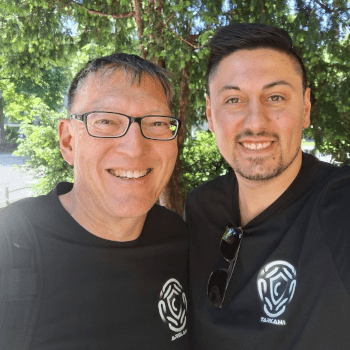
M.Eng Tarkan Yavas & Dipl.-Inform. Arslan BrömmeChief Executive Officer & Co-Owner, Chain Horizon GmbH
This presentation will be a quick but comprehensive tour of zk-email. From high level overviews on how everything works under the hood to applications that are being built on top of zk-email.
Speaker:

zkfriendlyEngineer, zkemail
EF Research Challenge: Opening
The Research Challenge is an event organized by the Ethereum Foundation and TUM Blockchain Club, combining research discussion with a hackathon format. Participants will explore three active research problems in the MEV space, then work in groups to develop solutions. The MEV domain spans a wide range of challenges, from decentralized block building to the use of applied cryptography for ensuring fair transaction ordering.
DLT Pilot Regime: The current status and challenges from a regulatory perspective
The presentation offers an overview of the DLT Pilot Regime, summarizing recent approvals and exploring regulatory challenges related to technology, risk management, and settlement using central bank money vs. stablecoins
Speaker:

Dr. Johanna RöhrsAdvisor, BaFin
Building Bug-Free ZK Circuits With Clean
This talk will give an introduction to clean, our new DSL for writing zero-knowledge circuits embedded in Lean 4. It lets developers implement circuits and prove their correctness simultaneously, drastically improving the security of ZK applications.
Speaker:

Dr. Marco BesierSecurity Researcher, zkSecurity
Humanity in the age of AI
The World project, co-founded by Sam Altman and Alex Blania, enables individuals to prove they are human (and not AI) online. Sven Seuken, Chief Economist at Tools for Humanity, will explain the core idea and why it is essential in the age of AI.
Speaker:

Dr. Sven SeukenChief Economist, Tools for Humanity / World
Navigating EU Crypto Reporting: The DAC8 Perspective
An informative session on DAC8, the EU’s new crypto tax directive, explaining its reporting requirements and exploring how it will shape compliance for users, exchanges, and the broader Web3 ecosystem.
Speaker:
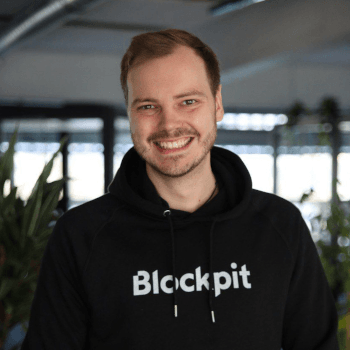
Fabian LeimerPartnership Manager, Blockpit
Gossiping Anonymous Cyber Threat Intelligence Within a Decentralized Network
This presentation shows a novel concept for efficient, anonymous, accountable, and confidential Cyber Threat Intelligence exchange within a permissioned, decentralized environment.
Speaker:
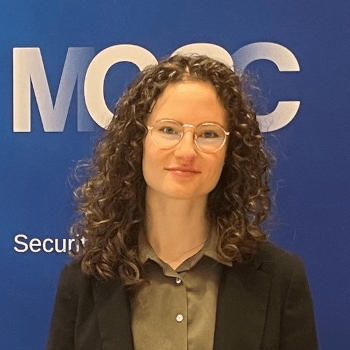
Veronique EhmesPhD candidate, TUM | Security Researcher, Fraunhofer AISEC
Blind signatures in blockchain protocols
Blind signatures, first conceived for e-cash, allow users to obtain a signature on a message that is hidden from the signer. We discuss their applications in blockchain systems such as blind coin swaps.
Speaker:

Georg FuchsbauerProfessor for cryptography, TU Wien
Privacy-Preserving Smart Contracts Using VM-Based Trusted Execution Environments
Speaker:

Eber ChristerResearch Student, TUM
XRPL: The Oldest Modern Blockchain? What a 2012 Protocol Got Right, And What It Still Needs
In 2012, XRPL launched with a built-in DEX. Over the decade, features like NFTs and AMMs were added natively. As modern chains now adopt native DeFi layers, this talk explores XRPL’s early choices, trade-offs in programmability, and what’s next.
Speaker:
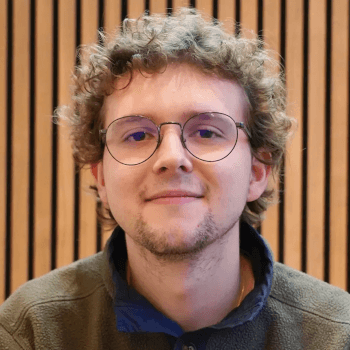
Thomas HussenetTechnical Partner, XRPL-Commons
Fighting Money Laundering on Chain: Are Regulations Truly Effective?
Panel Discussion
Regulation
Blockchain enables transparency yet challenges oversight. How effective are current regulations? This panel explores the limits of today’s frameworks and new approaches to combating on-chain money laundering.
Speakers:

Dr. Lars HaffkePartner, pikepartners

Salih AltuntasDirector of Investigations for Central Europe, Chainalysis | Former Police Investigator

Julia LippothHead of Compliance in Crypto, Bullish Europe GmbH
Airdrops: Giving Money Away Is Harder Than It Seems
Airdrops are a popular mechanism used by blockchain protocols to bootstrap communities, reward early adopters, and decentralize token distribution. Despite their widespread adoption, the effectiveness of airdrops in achieving long-term user engagement and ecosystem growth remains poorly understood. In this paper, we present the first comprehensive empirical study of nine major airdrops across Ethereum and Layer-2 ecosystems. Our analysis reveals that a substantial share of tokens—up to 66% in some cases—are rapidly sold, often in recipients' first post-claim transaction. We show that this behavior is largely driven by ``airdrop farmers,'' who strategically optimize eligibility criteria to extract value without contributing meaningfully to the ecosystem. We complement our quantitative findings with a case study of the Arbitrum airdrop, illustrating how short-term activity spikes fail to translate into sustained user involvement. Based on these results, we discuss common design pitfalls—such as Sybil vulnerability, poor incentive alignment, and governance token misuse—and propose actionable guidelines for designing more effective airdrop strategies.
Speaker:

Dr. Johnnatan MessiasResearch Scientist, MPI-SWS
Sealed-Bid Auctions via TEE-Backed Confidential Compute Blockchains
Sealed-bid auctions ensure fair competition and efficient allocation but are often deployed on centralized infrastructure, enabling opaque manipulation. Public blockchains eliminate central control, yet their inherent transparency conflicts with the confidentiality required for sealed bidding. Prior attempts struggle to reconcile privacy, verifiability, and scalability without relying on trusted intermediaries, multi-round protocols, or expensive cryptography. We present a sealed-bid auction protocol that executes sensitive bidding
logic on a Trusted Execution Environment (TEE)-backed confidential compute blockchain while retaining settlement and enforcement on a public chain. Bidders commit funds to enclave-generated escrow addresses, ensuring confidentiality and binding commitments. After the deadline, any party can trigger resolution: the confidential blockchain determines the winner through verifiable off-chain computation and issues signed settlement transactions for execution on the public chain. Our design provides security, privacy, and scalability without trusted third parties or protocol modifications. We implement it on SUAVE with Ethereum settlement, evaluate its scalability and trust assumptions, and demonstrate deployment with minimal integration on existing infrastructure.
Speaker:

Jonas GebelePhD Student, TUM
New Research and Solana – Turbin3
Exploring ways to bridge the gap between academic research and real-world blockchain innovations by identifying methods, opportunities, and practical applications.
Speaker:

Mykola PodluzhnyiSoftware Engineer, Anagram
Panel Discussion
Sub Events
Academic Forum: Closing Remarks
Summarization of the academic forum talks and key takeaways
Protecting the Digital World: Insights from the UN Cybercrime Convention
Can we keep our privacy in a "safe" society? Privacy is on decline - from anti-money laundering rules to the most recent UN Cybercrime Convention. This talk dives into the consequences for coders and the blockchain space.
Speaker:

Dr. Nina-Luisa SiedlerLawyer, University of Applied Science Berlin
Starfish: DAG-based Consensus via Encoded Cordial Dissemination
We present Starfish, a DAG-based consensus protocol, in which participants use a pushing strategy for block dissemination. By encoding transaction data and constructing implicit data availability certificates directly on the DAG, we show how Starfish achieves low latency, high throughput, and asymptotically linear amortized communication complexity.
Speaker:

Nikita PolianskiiSenior Applied Research Engineer, IOTA Foundation
Crypto Hack Forensics – An Auditor’s Perspective
Crypto hacks have become almost routine headlines, but what really happens behind the scenes when tens of millions vanish overnight? In this session, we’ll take you inside the forensic investigation of the July 2025 GMX hack, where more than $42 million was drained from the protocol. From the lens of a smart contract auditor, we’ll reveal how security teams respond in real time, the tools and techniques we use to untangle complex attack vectors, and how an exploit can be reconstructed step by step. Join us to discover what it takes to dissect one of the year’s largest DeFi hacks and what everybody and every project can learn to better defend against the next one.
Speaker:

Tobias MadlDirector, Neodyme AG
Evolution of ESG-focused DLT Research: An NLP Analysis of the Literature
Analyzing the environmental, social, and governance aspects of blockchain research evolution and technology using natural language processing
Speaker:

Walter HernandezResearch Fellow, Exponential Science
We show how splitting SNARK proving into private and public parts enables efficient accumulation and delegation. This yields lighter recursion, shorter witnesses, and scalable privacy-preserving delegation.
Speaker:
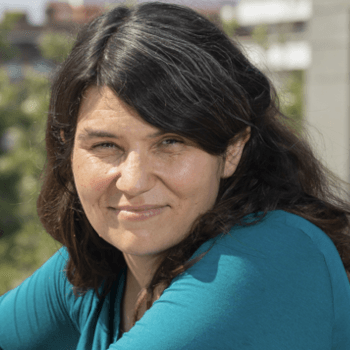
Carla RàfolsAssociate professor, Universitat Pompeu Fabra, Barcelona
Predict, Detect, Protect: How AI Is Changing Web3 Security
Panel Discussion
Ecosystem
Scams and exploits move fast, but can AI move faster? This panel dives into how machine learning is being used to detect fraud, analyze contract risk, and surface real-time threats in the Web3 ecosystem.
Speakers:
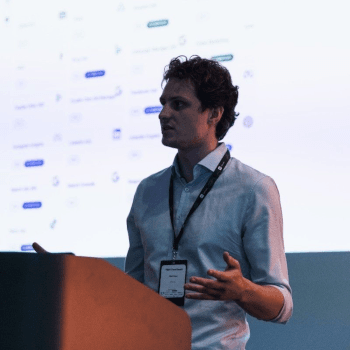
Marc CasasHead of BD and Growth, Webacy
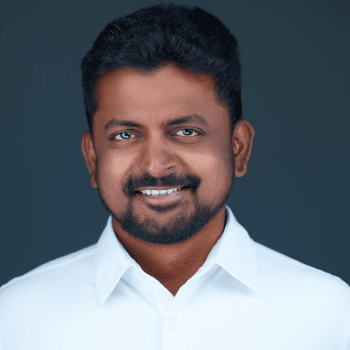
Vijay PravinFounder & CEO, bitsCrunch
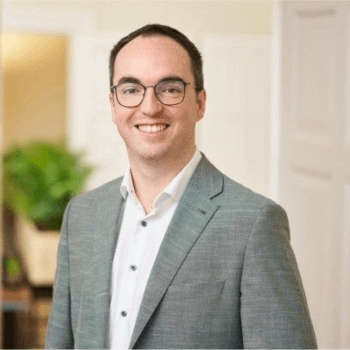
Yannik HeinzeChief Executive Officer, softstack

Dr. Sebastian BanescuFounder & CEO, Adevar Labs
An analysis of zk-proving all Ethereum blocks
ZkCloud has been working with the EF, proving every Ethereum block since 1 April 2025. Since then, we've generated over 770K proofs for mainnet blocks. In my presentation, I would share an analysis and our learnings in proving Ethereum.
Speaker:

Norbert VadasHead of Product, ZkCloud
Building with the Filecoin Onchain Cloud Stack
Hands-on exploration of Filecoin Onchain Cloud stack. Master cryptographic basics, economic design, and developer SDK to build services combining decentralized storage, payments, and onchain verification.
Speaker:

Nick LionisDeveloper Advocate , @Fil-builders
Is every L2 a rollup? Introduction to L2 blockchain scaling
In my talk I will present optimistic and zk rollups architectures, their benefits, use-cases, challenges and tradeoffs.
Speaker:

Krzysztof GogolL2, DeFi Research
Avoiding arithmetization overheads in SNARKs
I will discuss the topic of arithmetization in proof systems. This is a costly step in many natural applications, e.g. hashes, CPU instructions, etc. I will present our work Zinc and our efforts towards entirely removing all arithmetization costs.
Speaker:
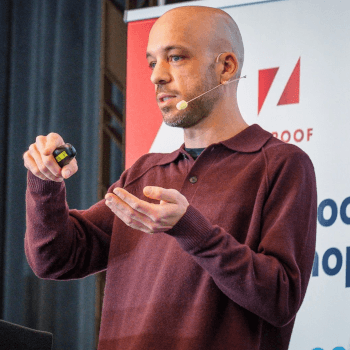
Albert GarretaLead cryptography researcher, Nethermind
Self-Custody is rewarding
Self-custody is no longer just cold storage; it's a powerful gateway to the Web3 ecosystem. Discover how a secure hardware wallet can help you access the decentralized world and unlock your financial freedom.
Speaker:

Guillaume MathiasVP Product, Ledger
Mechanisms Driving Rollup Evolution
Technical overview of rollup innovation mechanisms: based sequencing, preconfirmations for fast finality, Superchain interoperability solutions, and native execution models reshaping L2 design
Speaker:

Phillip KemperEngineer, Zircuit
A hands-on guide to the XRP Ledger, how to get started on it, and its best use cases
Speaker:

Thomas HussenetTechnical Partner, XRPL-Commons
Bridging the Trade: Brokers vs. Exchanges in the Evolving Crypto
Differences between brokers and exchanges, focusing on the European market. Order books and matching engines.
Speaker:

David KurzBD & Partnerships, Bitvavo
Economic Safety and Throughput in Proof-of-Stake Blockchains
We consider economic security when non-compliant stake exceeds a third of the total, analyze economic throughput per block, and discuss whether insurance can be used to value blocks.
Speaker:

Jens GrothChief Scientist, Nexus
Differences in Solana and Sui Security
A deep dive into the security paradigms of Solana and Sui. This talk dissects key differences, from Solana's Rust programs and global state to Sui's object model and purpose-built Move language, highlighting their impact on developer and user safety.
Speaker:

Dr. Sebastian BanescuFounder & CEO, Adevar Labs
Beyond Liquidity: The current state of exchanges
Panel Discussion
Ecosystem
To be announced soon
Speakers:

Dr. Sven HildebrandtManaging Director, Bitpanda

Joël Kai LenzHead of Communications, Relai

Katarzyna WabikHead of Growth CEE, Kraken

David KurzBD & Partnerships, Bitvavo
Obfuscation, the tech that will solve crypto.
I'm going to explain the importance of this technology, and what real applications enables.
I'm going to explain also the advances of the last years. and what are the current research paths.
Speaker:

Jordi BaylinaDeveloper, ZisK
Euro and other localized Stablecoins
To be announced soon
Speakers:

Peter GrosskopfCTO/COO, AllUnity

Sebastian BeckerManaging Director, German Blockchain Association 'Bundesblock'
Not your bank, not your future -- new rails for old ideas.
Your deposits earn no interest, but when you need a loan, you pay through the nose. Finance today is built to extract from its users, turning money into something that works against you. History doesn’t repeat, but it rhymes. In the 19th century, farmers and artisans escaped the system by becoming their own bank: Pooling savings, lending to each other fairly, and taking back control. This talk explores what we can learn from them today, and how blockchain lets us build finance that we actually own — with user agency, upside, and the power to co-create the rails themselves.
Speaker:

Dr. Friederike ErnstFounder, Gnosis
Censorship Resistance & Polkadot's Collator Protocol
All layer two protocols have serious gaps in their liveness assurances known as "capture attacks", in which a super-majority dishonest layer two nodes exploits the layer one to excludes the one honest layer two node.
We'll discuss how the polkadot collator protocol shall defeat "capture attacks", so that a single honest collator prevents cpature. In polkadot, we shall move user accounts, staking, slashing, governance, validator elections, and any future DKGs from the relay chain to system parachains, so defeating "capture attacks" helps minimize our security assumptions.
Speaker:

Jeff BurdgesTrouncing rollups, Polkadot
Solana Superteam Germany Ideathon
The Ideathon is a collaborative event for both newcomers and experienced developers to explore blockchain innovation, form teams, and develop project ideas. After an introduction and co-working session, teams will pitch their projects for a €1500 prize pool. Participants can also advance their ideas further by competing in the Solana Colosseum Hackathon later in September.
Speaker:
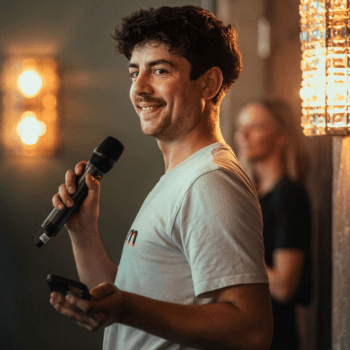
CarloCommunity Lead, SuperteamDE
The spectrum of Influence
Panel Discussion
Ecosystem
This panel explores the different ways people shape crypto — not just through markets or memes, but through presence, connection, and how they show up.
Speakers:

CryptoleonChief Meme Officer

CarlitoswayInvestor, Advisor, Influencer

CarloCommunity Lead, SuperteamDE

June HolderithGerman Outreach Manager, Ledger
SpaceComputer - Out of this World Programmable Platform
The talk explores the vision of confidential compute L1 running on the LEO constellation. We focus on the introduction of the spaceTEE and how it can enhance the pre-confirmations and security for its users on Earth, including L1s and L2s.
Speaker:
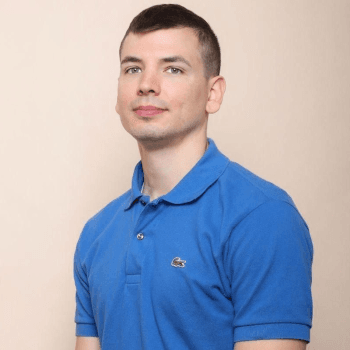
Filip RezabekResearcher, Co-Founder, SpaceComputer
Data-Driven Growth: Accelerating Web3 and DAO Growth through Quantitative Analytics
Every blockchain/dApp must grow and acquire users. The three core methods: Airdrops, Grants, and Liquid Incentives, each come with tradeoffs. It shows key metrics to evaluate, score, and optimize these strategies for sustainable, data-driven growth.
Speaker:

Dr. Christian ZieglerCTO, StableLab
Beyond Hype: Consulting Insights on Web3 Strategy
In this panel, leading consulting experts will share their first-hand insights on how enterprises, startups, and investors can cut through the hype and build sustainable Web3 strategies. The discussion will highlight real-world use cases, strategic frameworks, and lessons learned from advising clients at the forefront of blockchain adoption.
Speakers:

Husen KapasiEnterprise Blockchain Lead, PwC

Jan-Eric DippelHead of Consulting, Digital Ethics

Dr. Dirk SturzMD and Co-Founder, FinPlanet GmbH

Alexander KlöpperManager, EMA-Lead Digital Assets Compliance, KPMG AG
Challenges of an Exchange
An inside look at the challenges of running a crypto exchange under the EU’s strict regulatory framework, highlighting how these guidelines enhance investor safety and trust in digital assets.
Speaker:

Jonas JüngerRegional Director, Binance
Data Center Execution Assurance - Closing the Gap in TEE Deployment Strategies
Speaker:

Filip RezabekResearcher, Co-Founder, SpaceComputer
Shaping the Future of Financial Market Infrastructures with DLT and Wholesale CBDC
The talk covers wholesale CBDC and DLT, their role for future financial market infrastructures, insights from the ECB’s 2024 exploratory work, and the Eurosystem’s outlook on short- and long-term settlement solutions.
Speaker:

Dr. Besfort ShalaSenior Technology Expert and Tech Lead, Deutsche Bundesbank
Conviction Capital: VC Perspectives on What’s Next
Panel Discussion
Application
Speakers:

Dimitrios ChatzianagnostouChief Investment Officer and Partner, OutlierVentures

Dr. David AnPartner, Dracoon Ventures

Bastian WetzelHead of Acceleration Investments, CV VC

Anies KhanInvestment Associate, Greenfield Capital

Sabrina GoerlichCPO, W3FF
Optimistic MEV in Ethereum Layer 2s: Why Blockspace Is Always in Demand
Layer 2 rollups are rapidly absorbing DeFi activity, securing over $40 billion and accounting for nearly half of Ethereum's DEX volume by Q1 2025, yet their MEV dynamics remain understudied. We address this gap by defining and quantifying optimistic MEV, a form of speculative, on-chain MEV whose detection and execution logic reside largely on-chain in smart contracts. As a result of their speculative nature and lack of off-chain opportunity verification, optimistic MEV transactions frequently decide not to execute any trades.
Speaker:

Ozan SolmazETH Zurich
EF Research Challenge: Closing
Concise presentations followed by evaluation, judging, feedback, and announcement of winners
The Future of Money - A tale of CBDC, stablecoins and deposit tokens
Panel Discussion
Ecosystem
Panel discussion: Stablecoins, CBDCs and tokenized deposits: How can Europe secure currency sovereignty against USD dominance, balance regulation with innovation, and shape the future of money?
Speakers:

Lars HupelChief Evangelist CBDC, G+D

Wolfgang BergerPartner, CTO Banking & Financial Markets, IBM
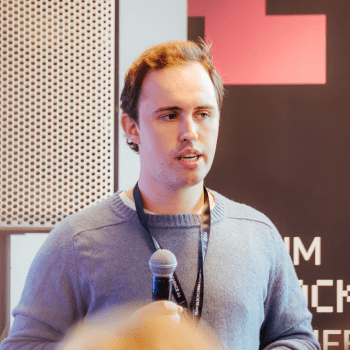
Maximilian BaumVice President, Deutsche Bank

Meglena GruevaDirector of Risk & Regulatory Reporting, AllUnity

Atakan KavukluSenior Consultant, IBM
The Forking Way: When TEEs Meet Consensus
Many blockchain platforms now integrate Trusted Execution Environments (TEEs) for confidential computing. We systematize 29 such solutions, reveal four main integration approaches, uncover new forking attacks, and propose effective countermeasures.
Speaker:

Annika WildeResearch Assistant, Ruhr University Bochum
The Future of Stablecoins: Safe Asset or Systemic Risk?
Panel Discussion
Regulation
to be announced soon
Speakers:

Patrick HansenSenior Director, EU Strategy & Policy, Circle
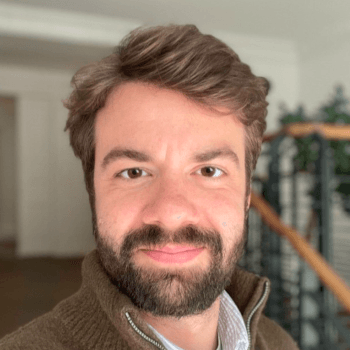
Walter BörstPartnerships, DLT Finance

Veronika FerstlBusiness Analyst Digital Assets, dwpbank

Dr. Anika PatzPartner, YPOG
Your Data, Your Logic, Your Internet
Who truly owns your digital life? This talk explores data sovereignty, the limits of Web2, and how the Internet Computer enables a decentralised cloud where users own and control their data and apps.
Speaker:

Björn AßmannStaff Research Scientist, DFINITY
Digital Assets and Taxation: How to use the law to your own advantage!
As the saying goes "Nothing is certain except death and taxes" and thats not different for crypto. But taxes are not made in mind of market cycles so we will look into different strategies and risks between bull and bear markets.
Speaker:

Werner HoffmannFounder, Pekuna
To Be Announced Soon (This will be an online talk)
Student Initiatives Night
Official closing of the TUM Blockchain Conference 2025
Speakers:

Gopi MehtaPresident, TUM Blockchain Club

Felix RihacekIndustry, TUM Blockchain Club
TBC’25: The Official After Party | Sponsored by Bitvavo
Official After Party of the TUM Blockchain Conference 2025!



















































































































